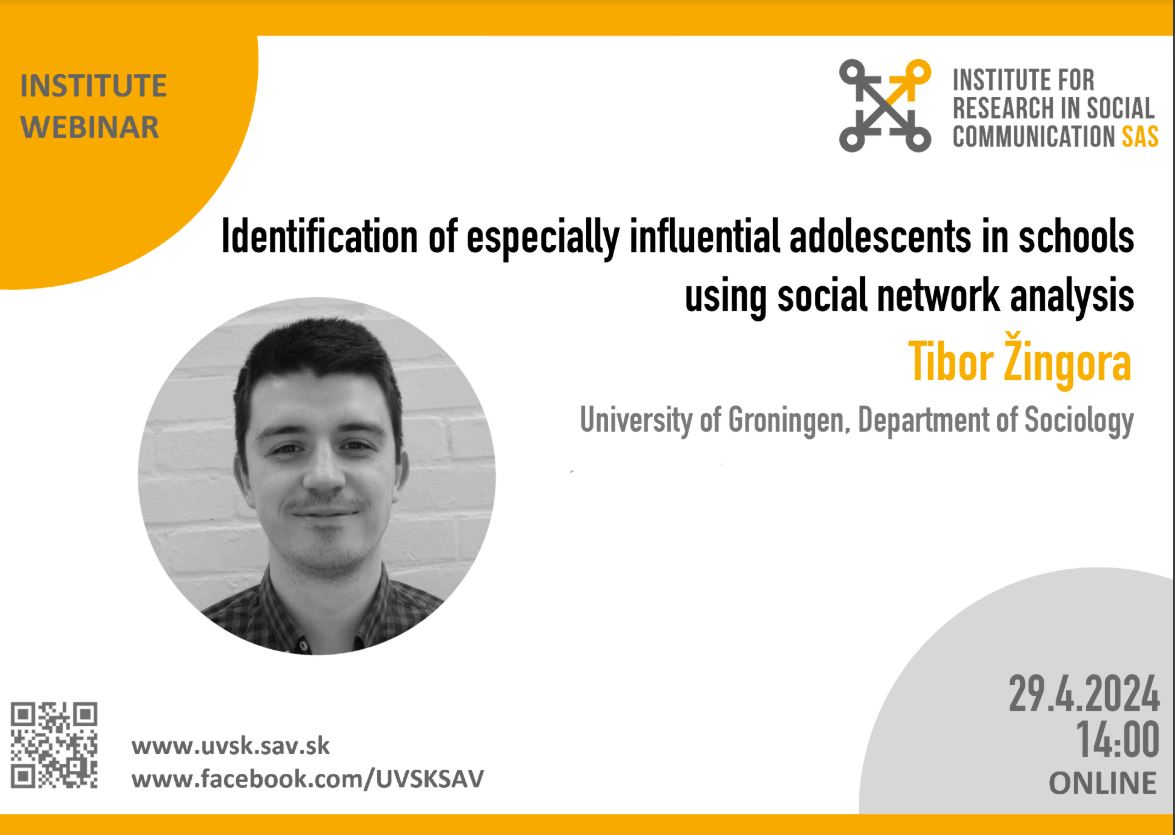We cordially invite you to attend the Institute Seminar entitled “Identification of especially influential adolescents in schools using social network analysis” by Tibor Žingora from the University of Groningen. The seminar will be in English and it will take place online. If you are interested in participating, please fill out the simple form: https://docs.google.com/forms/d/e/1FAIpQLSezS5-Tv3PGt3d_sW3Pz22EFMk1hXWJ2jDgGzEPiXNVEnjooQ/viewform?usp=sf_link
On the day of the seminar, you will be sent Zoom meeting access details. The maximum number of participants outside of the institute is 50 people.
Event on Facebook: https://fb.me/e/391WFGW0a
Identification of especially influential adolescents in schools using social network analysis
Tibor Žingora, University of Groningen
Pondelok, 29.4.2024, 14:00 CET, online
Abstract: Adolescence is a critical stage in the development of attitudes and behaviors, and peers play a crucial role in it. I will present a project in which we aim to identify the most influential adolescents in schools who could spread attitudes and behaviors among their peers. In a series of studies, we (1) distinguished and contrasted different forms of peer influence; (2) investigated different mechanisms underlying social influence; and (3) examined whether a potential indicator of social influence identified individuals who were especially effective in spreading attitudes and behaviors. Social influence in schools is a complex process that can be addressed with network science, such as stochastic actor-oriented modeling. We conducted an empirical investigation of our models, which were subsequently used in empirically anchored agent-based simulations. In simulations, adolescents who were popular in terms of being frequently selected as friends were particularly effective in spreading attitudes and behaviors in their schools. These adolescents are preliminarily considered ideal candidates to be targeted in school interventions.







